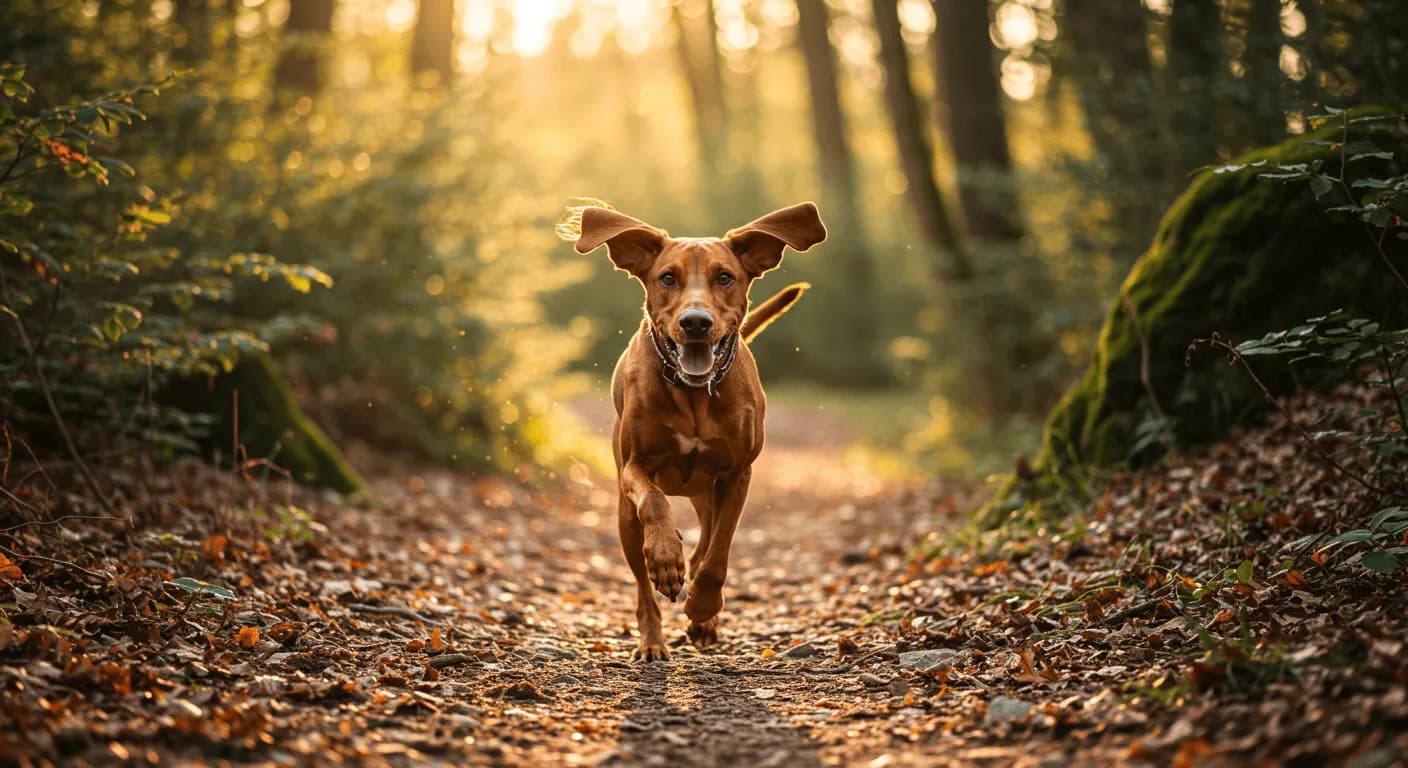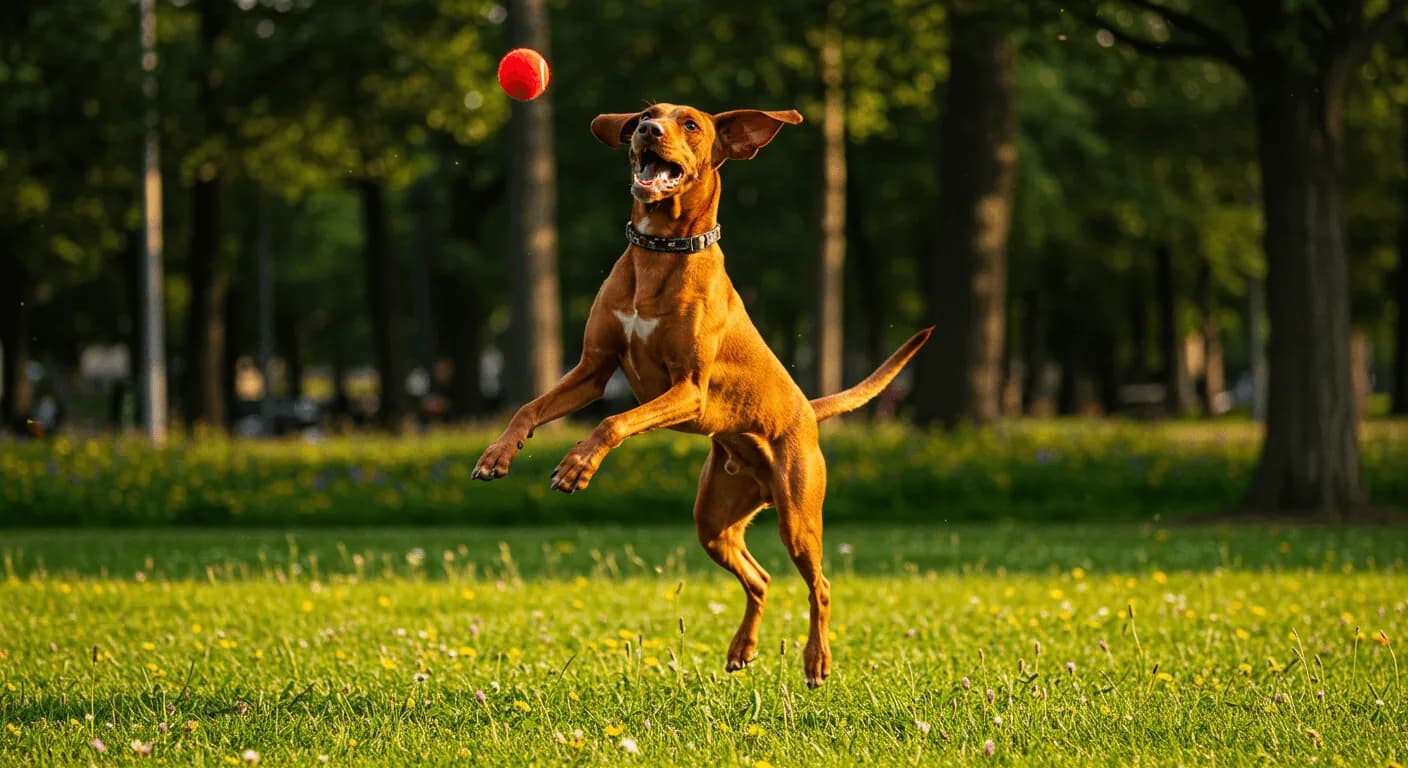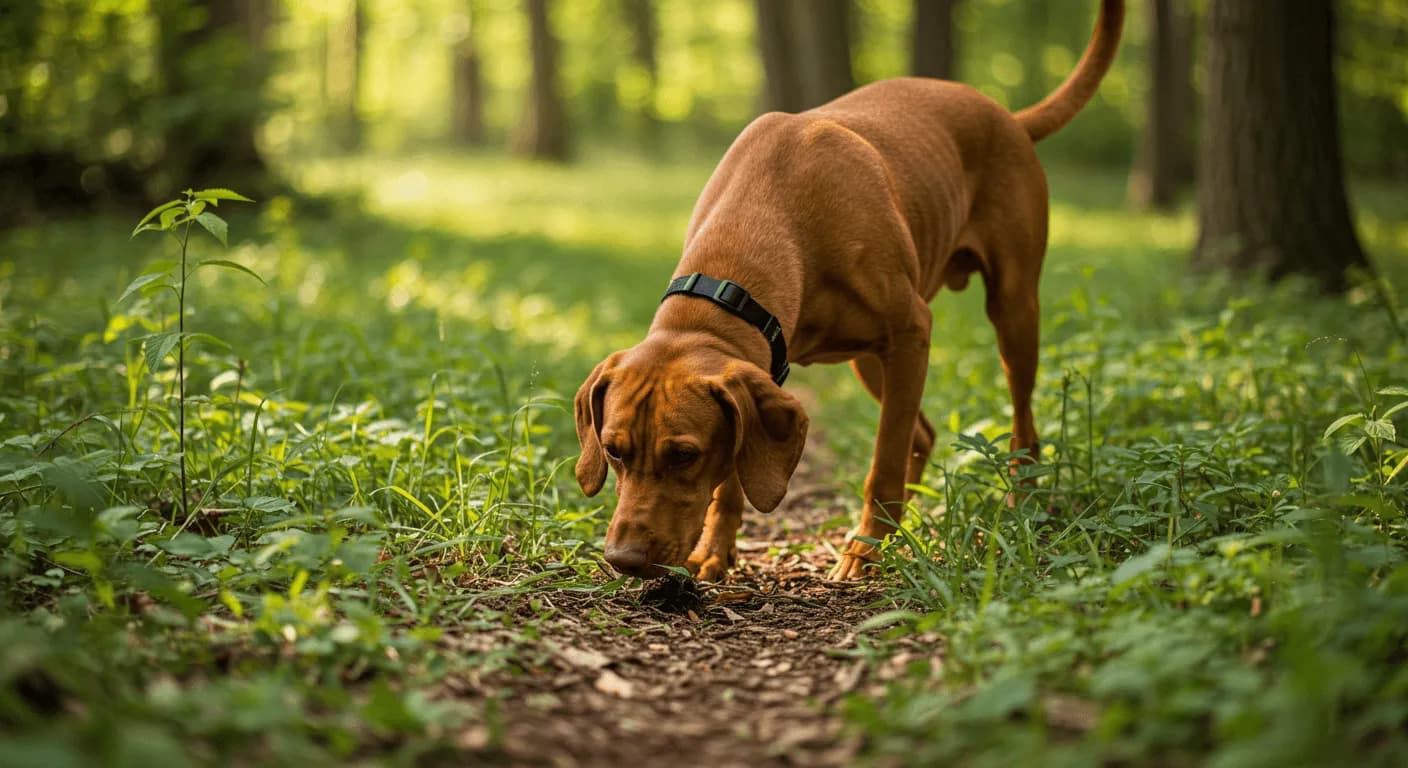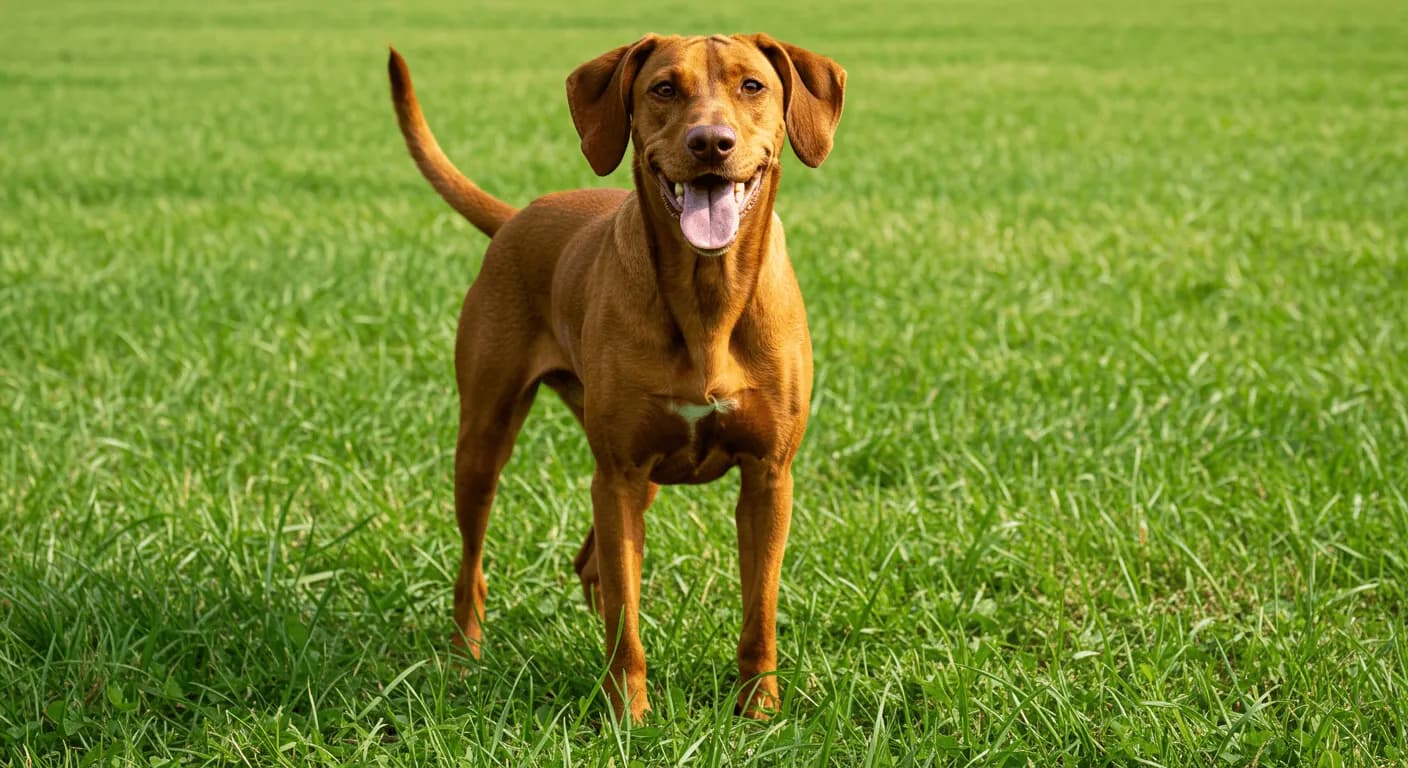The Redbone Coonhound is a strikingly beautiful and spirited breed known for its stunning red coat, friendly demeanor, and incredible hunting abilities. Developed in the United States, Redbone Coonhounds are versatile dogs that excel both as working hounds and loyal family companions. Their combination of athleticism and affectionate nature can make them a wonderful addition to the right home.
Is a Redbone Coonhound right for me? That’s likely the big question on your mind! In this guide, we’ll dive deep into what makes this breed special, who they’re suited for, and what you should consider before welcoming one into your life.
Temperament and Personality
Redbone Coonhounds are celebrated for their even, gentle temperament paired with a zestful energy that makes them exceptional companions for active households.
- Friendly and Affectionate: Redbone Coonhounds are typically very loving toward their family members. They are known to form strong bonds and can be quite touchy-feely, enjoying cuddles and affectionate gestures.
- High Energy: Bred to track and hunt for hours on end, Redbone Coonhounds have a lot of energy to burn. Daily vigorous activities are a must to keep them content and healthy.
- Social Creatures: They generally get along well with other dogs and often love to be part of a "pack," whether that’s a household full of pets or an actively social family.

Pros and Cons for Different People
Choosing the right dog breed requires evaluating how well their traits fit into your lifestyle. Let's break down the potential match between Redbone Coonhounds and different types of owners.
Families with Children
- Pro: Their friendly and patient nature makes them great playmates for kids.
- Con: Their size and exuberance may unintentionally knock down smaller children.
Single Individuals
- Pro: Great outdoor companions for hikes, runs, and adventures.
- Con: Their need for companionship may be challenging for singles who work long hours.
Elderly Owners
- Pro: Loveable and loyal, offering emotional support and affection.
- Con: Their high energy and need for consistent exercise may be overwhelming.
Active vs. Sedentary Lifestyles
- Active Lifestyle: Perfect match! Redbone Coonhounds love long walks, hiking, and active play.
- Sedentary Lifestyle: Likely a poor match. Lack of activity can lead to behavioral problems and health issues.

Suitability Factors
Wondering how a Redbone Coonhound fits into different home environments and situations? Let’s explore further.
- Good with Kids: Yes! Their playful and patient demeanor makes them wonderful companions for children.
- Good with Other Dogs: Yes, especially when socialized early. They often thrive in multi-dog households.
- Good with Cats: It’s complicated. Their strong prey drive can make living with cats challenging unless carefully introduced.
- Guard Dogs: Not the best choice. They are friendly and less territorial than traditional guard dog breeds.
- Good for Apartments: Not ideal. Redbone Coonhounds need space to move and exercise and may feel cramped in small living spaces.
- Need for a Yard: Highly recommended. A securely fenced yard allows them to burn off energy appropriately.
- For First-Time Owners: Possibly, if you are active and committed to training and proper exercise routines.
Care Requirements
Owning a Redbone Coonhound means committing to their daily care and meeting their physical and emotional needs.
Exercise Needs
They require substantial daily exercise. Ideally, they should get at least an hour or more of vigorous physical activity such as:
- Long walks or runs
- Hiking adventures
- Active play sessions in a secure backyard
Without sufficient exercise, a Redbone Coonhound can become bored and destructive.
Grooming Requirements
- Coat Care: Their gorgeous, short red coat is relatively low-maintenance. Brushing once or twice a week helps remove dirt and loose hair.
- Shedding and Drooling: They are moderate shedders and drool only occasionally, making them relatively easy companions when it comes to cleanliness.
Training Considerations
- Intelligence and Stubbornness: While intelligent, Redbone Coonhounds can be independent thinkers. Patience and consistency in training are essential.
- Barking Tendencies: Because they are a hound breed trained to alert by barking or baying, they can be vocal. Early training can help manage this behavior.
Living Arrangements
- Living Outside: Not advisable. Redbone Coonhounds are social animals who thrive indoors with their families.
- Being Left Alone: They are prone to separation anxiety if left alone for extended periods. Potential owners should arrange for companionship or dog walking schedules during the day.
- Maintenance Level: Moderate. Grooming is manageable, but their high exercise needs require a significant daily investment of time and energy.

Health and Lifespan
Understanding a breed's potential health issues is crucial before making a lifelong commitment.
Common Health Issues
Some health concerns to be aware of include:
- Hip dysplasia
- Ear infections (common in floppy-eared breeds)
- Obesity, if exercise needs are not met
- Eye problems like Progressive Retinal Atrophy
Routine vet check-ups and proper care can address these issues proactively.
Life Expectancy
The average lifespan of a Redbone Coonhound is 12 to 15 years, which is relatively long for a medium-to-large breed.
Hypoallergenic Status
Unfortunately, Redbone Coonhounds are not hypoallergenic. They shed moderately, and people with dog allergies should be cautious.
Cost and Legal Considerations
Before bringing a Redbone Coonhound home, it’s important to understand financial and legal aspects.
How Much Does a Redbone Coonhound Cost?
Initial purchase prices can vary depending on the breeder and lineage quality:
- Puppy Cost: Typically between $500 and $1,200
- Annual Costs: Including food, grooming, vet care, and supplies, expect to spend an average of $1,000 to $1,500 per year.
Adopting from a rescue can be more cost-effective and is a great way to provide a loving home to a dog in need.
Legal Restrictions
Redbone Coonhounds are not typically subject to breed-specific legislation. However, always check local ordinances or homeowners’ association rules, especially in urban areas, regarding dog breeds and pet ownership rules.
Stay tuned for the conclusion where we will summarize key points and help you make the final decision on whether a Redbone Coonhound is your perfect canine companion!## Intelligence and Mental Stimulation
Redbone Coonhounds aren't just physically energetic; they are also quite smart and curious. These dogs need regular mental stimulation to stay happy.
- Problem Solvers: Thanks to their hunting heritage, Redbone Coonhounds have strong problem-solving skills. Puzzle toys, scent games, and advanced obedience training can help keep their minds engaged.
- Training Challenges: Their independent nature means that training can sometimes feel like a battle of wills. Positive reinforcement techniques work best, and consistency is key.
- Boredom Prevention: Without mental challenges, they may invent their own entertainment, which can include undesirable behaviors like chewing or digging.

Enrichment activities such as hide-and-seek, agility courses, and interactive toys are excellent ways to satisfy their quest for exploration and mental workout. A mentally stimulated Redbone Coonhound is a well-behaved and content one!## Conclusion
The Redbone Coonhound is a vibrant, affectionate, and energetic breed that can make a fantastic companion for the right owner. Their loving nature, combined with their striking appearance and zest for life, makes them a wonderful addition to active households that can meet their physical and mental needs.
However, they aren’t a one-size-fits-all breed. Potential owners must be prepared for their high exercise demands, occasional stubbornness during training, and need for close companionship. They thrive in homes where they have space to roam, consistent routines, and plenty of social interaction.
If you’re an active individual or family looking for a loyal, outgoing, and adventurous canine companion — and you have the time and energy to dedicate to their needs — the Redbone Coonhound could be the perfect fit. Take time to honestly assess your lifestyle and commitment level before making the decision, and you’re likely to find a lifelong best friend in this charismatic breed.

